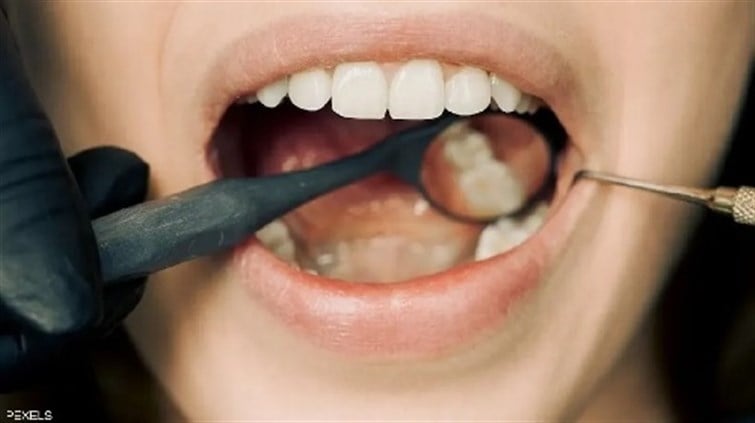New Study Reveals 6 Mouth Signs that Could Indicate Diabetes
London, UK – A recent study conducted by dentist Radwan Mahmoud from Rush Dental in London has revealed that there are six signs that may appear in the mouth that could indicate the presence of diabetes. While the main signs of diabetes typically include extreme thirst and an increased need to urinate, these oral signs can serve as early warning signs for the disease.
According to Mahmoud, regular oral examinations while brushing teeth can help in the early diagnosis of diabetes. He advises individuals to consult their dentist if they notice anything unusual in their mouth.
The six main signs in the mouth that could indicate diabetes, as identified by Mahmoud, are bad breath, a fruity scent, gum swelling and redness, tooth decay and loss, sores, and oral thrush. Diabetics are more likely to develop gum disease, which can be a serious condition involving inflammation of the gums and bone around the teeth.
One easy way to determine if gum disease is present is to floss. If flossing between the teeth causes bleeding, it may be a sign of gum disease. Mahmoud explains that gum disease can also lead to bad breath and tooth loss. However, it is important to note that gum disease can also be a result of improper brushing techniques.
The National Health Service in Britain states that gum disease is caused by the accumulation of plaque on the teeth. If plaque is not removed through regular brushing, it can build up and irritate the gums.
Diabetes can also cause a dry mouth due to a lack of saliva, which helps control bacteria levels and wash away acids around the teeth and gums. Mahmoud warns that a dry mouth can lead to various oral problems, including ulcers and tooth decay. Additionally, diabetics are more susceptible to oral thrush, characterized by white or yellow patches on the mucous membranes of the mouth, as it can
What are the six oral indicators of diabetes discovered in the study?
New Study Uncovers 6 Oral Indicators of Diabetes
London, UK – In a groundbreaking study led by dentist Radwan Mahmoud from Rush Dental in London, it has been discovered that there are six distinct signs that may manifest in the mouth as potential indicators of diabetes. While the usual symptoms of diabetes often include excessive thirst and frequent urination, these oral signs may serve as early warning signals for the disease.
To facilitate early diagnosis of diabetes, Mahmoud emphasizes the importance of regular oral examinations during teeth brushing. He advises individuals to consult their dentist if they notice any abnormalities in their mouths.
Mahmoud has identified six primary indicators in the mouth that could suggest the presence of diabetes. These include bad breath, a fruity odor, gum swelling and redness, tooth decay and loss, sores, and oral thrush. Individuals with diabetes are more prone to developing gum disease, a severe condition marked by inflammation of the gums and surrounding bone.
A straightforward method to determine the presence of gum disease is through flossing. If flossing causes bleeding between the teeth, it may be an indication of gum disease. Mahmoud explains that gum disease can also result in halitosis and tooth loss. It is worth noting, however, that improper brushing techniques can also lead to gum disease.
According to the National Health Service in Britain, gum disease is caused by the buildup of plaque on the teeth. Failure to remove plaque through regular brushing can cause it to accumulate and irritate the gums.
Diabetes can also lead to a dry mouth due to decreased saliva production, which is vital for maintaining bacteria control and acid elimination around the teeth and gums. Mahmoud cautions that a dry mouth can give rise to various oral issues, including ulcers and tooth decay. Additionally, diabetics are more susceptible to oral thrush, which manifests as white or yellow patches on the mouth’s mucous membranes.



This article provides valuable insight into the lesser-known signs of diabetes that can manifest in our mouths. It serves as an eye-opener, reminding us to be attentive to our oral health and seek medical advice if we notice any of these six warning signs.